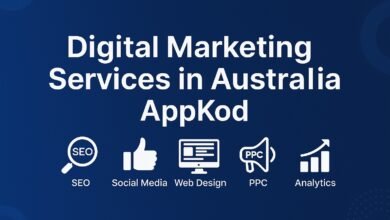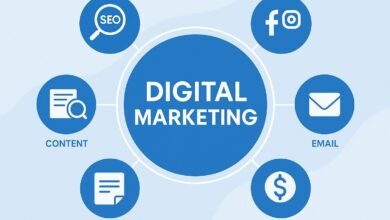Digital Marketing Strategist Job Description Template

Introduction to Digital Marketing Strategist Role
The role of a Digital Marketing Strategist has become increasingly vital in today’s fast-paced digital landscape. As organizations strive to enhance their online presence and engage audiences effectively, the strategist emerges as a pivotal figure within the marketing team. The primary responsibility of a Digital Marketing Strategist is to develop, implement, and oversee comprehensive digital marketing plans that align with the overall business objectives. This includes a wide range of tasks such as market research, content creation, branding, and data analysis.
To successfully navigate the complexities of the digital marketing environment, a Digital Marketing Strategist must possess a diverse skill set. Proficiency in search engine optimization (SEO), pay-per-click (PPC) advertising, social media management, and analytics tools is essential. Additionally, they must demonstrate strong analytical abilities, enabling them to extract actionable insights from data and adapt strategies accordingly. Effective communication and collaboration skills are also critical, as the Strategist often works closely with designers, content creators, and developers to ensure cohesive marketing efforts.
The importance of this role cannot be understated. A well-crafted digital marketing strategy drives brand awareness, generates leads, and ultimately contributes to conversion rates and sales. By understanding current market trends and audience behaviors, a Digital Marketing Strategist can effectively position the brand in the competitive landscape. Furthermore, they must remain agile, continuously optimizing campaigns based on performance metrics and emerging technologies. Given the rapid evolution of digital platforms, the strategist’s ability to pivot and adapt is key to sustaining a brand’s relevance and success in the ever-changing marketplace.
Key Responsibilities
The role of a Digital Marketing Strategist encompasses a variety of critical responsibilities aimed at enhancing an organization’s online presence and engagement. One of the primary duties is to develop and implement comprehensive marketing strategies that align with the organization’s goals. This involves setting clear objectives, defining target audiences, and identifying the most effective digital channels to reach potential customers. A well-structured digital marketing strategist job description template should reflect these essential functions.
Conducting thorough market research is another integral part of this role. This includes analyzing industry trends, understanding consumer behaviors, and evaluating competitors. Such insights allow a digital marketing strategist to make informed decisions regarding content creation, promotional campaigns, and overall strategy adjustments. Furthermore, the strategist is responsible for analyzing ongoing campaigns, measuring their effectiveness through various metrics, and making data-driven adjustments to improve results. This analysis is crucial for optimizing campaign performance and maximizing return on investment.
Budget management also falls within the purview of a Digital Marketing Strategist. The strategist must allocate resources wisely to ensure that all marketing activities are executed effectively without overspending. Additionally, the role requires oversight of various digital channels, ensuring that messaging remains cohesive across platforms. This consistency is vital for brand recognition and helps in building stronger customer relationships.
Collaboration with other teams, such as sales and customer service, is essential to ensure that marketing efforts align with overall business objectives. By working closely with these departments, the digital marketing strategist can create comprehensive strategies that drive success and foster a unified approach to customer engagement. This multifaceted set of responsibilities highlights the critical importance of a digital marketing strategist in promoting an organization’s brand and achieving its business goals.
Essential Skills and Qualifications
The role of a Digital Marketing Strategist demands a blend of both technical expertise and soft skills to navigate the complexities of digital platforms effectively. Firstly, proficiency in Search Engine Optimization (SEO) and Search Engine Marketing (SEM) is paramount. These skills enable the strategist to enhance online visibility and drive traffic to websites, which is a fundamental aspect of any digital marketing strategy.
In addition, a strong grasp of content marketing is vital. A Digital Marketing Strategist must comprehend how to leverage compelling content to enhance brand messaging and engage audiences. They should be able to develop and implement content strategies that resonate with the target demographics, ensuring that the marketing messages are both relevant and impactful.
Data analytics also plays a crucial role in this job description template. A successful Digital Marketing Strategist should be adept at analyzing market trends, understanding consumer behaviors, and utilizing data-driven insights to inform marketing decisions. Proficiency in tools like Google Analytics aids in tracking performance and measuring the effectiveness of campaigns, which is essential for optimizing digital strategies.
Moreover, social media management is a core competency. Given the growing importance of social platforms in the marketing landscape, strategists must possess the skills to create, manage, and analyze social media campaigns across various channels. This ensures not only engagement with customers but also alignment with the overall marketing objectives.
Beyond technical skills, soft skills such as creativity, excellent communication, and effective problem-solving abilities are equally important. These attributes enable strategists to innovate and adapt strategies to meet the dynamic nature of digital marketing. Finally, candidates with qualifications that include degrees in marketing, communications, or relevant certifications, such as Google Ads certification or HubSpot’s Inbound Marketing certification, will stand out in this competitive field, thereby enhancing their career prospects as Digital Marketing Strategists.
Tools and Technologies
A Digital Marketing Strategist relies heavily on a variety of tools and technologies to implement effective marketing strategies and campaigns. These essential resources facilitate the planning, execution, and analysis needed to drive successful digital marketing initiatives. One of the primary categories of tools used is marketing automation platforms, which help streamline and automate repetitive tasks. This can include email marketing campaigns, social media posting, and lead nurturing, allowing strategists to focus on higher-level strategy development.
Analytics tools play a crucial role in a Digital Marketing Strategist’s toolkit by providing insights into campaign performance and audience behavior. Platforms such as Google Analytics offer comprehensive data on website traffic, user engagement, and conversion rates, enabling marketers to measure the effectiveness of their strategies and make data-driven decisions. By leveraging these analytics tools, digital marketing strategists can refine their campaigns to better align with their target audience’s preferences and optimize their return on investment.
Another significant component is Customer Relationship Management (CRM) systems, which help strategists manage customer interactions and relationships systematically. These systems integrate customer data, allowing strategists to personalize marketing efforts, segment target audiences, and track customer journeys. The use of CRM tools enhances communication between different departments, ensuring a cohesive approach to customer engagement.
Content Management Systems (CMS) also play a pivotal role in the daily operations of a digital marketing strategist. A well-structured CMS allows for easy creation, management, and optimization of online content, which is critical for driving organic traffic and engagement. Familiarity with these technological resources can significantly benefit candidates pursuing a digital marketing strategist job description template, as it demonstrates their readiness to utilize these tools in creating efficient and innovative digital marketing strategies.
Importance of Analytics and Data-Driven Decision Making
In today’s dynamic marketing landscape, the role of a Digital Marketing Strategist hinges significantly on the ability to leverage analytics and data-driven decision-making. This importance cannot be overstated, as data serves as the backbone for formulating effective marketing strategies and enhancing overall campaign performance. Analytics provides insights that help strategists understand market trends, customer behaviors, and campaign outcomes, allowing them to refine their approaches accordingly.
A pivotal aspect of the Digital Marketing Strategist job description template involves determining which metrics and Key Performance Indicators (KPIs) to monitor. These metrics can include website traffic, conversion rates, customer acquisition costs, and return on investment. By consistently evaluating these indicators, strategists can assess the effectiveness of their campaigns and adjust their tactics for improved results.
Data-driven decision-making encourages marketers to shift from intuition-based strategies to evidence-based approaches. This not only minimizes risk but also maximizes the potential for success. For instance, by analyzing customer engagement data, a strategist may identify specific content types that resonate more effectively with their audience. Consequently, they can allocate resources toward developing these high-performing assets, thereby optimizing the customer experience and driving conversions.
Moreover, employing analytics fosters a culture of continuous improvement within marketing teams. By regularly reviewing performance data, strategists can pinpoint areas of strength and weakness, enabling them to make informed adjustments in real-time. This iterative approach enhances the agility of marketing efforts, allowing teams to respond quickly to changing market conditions and consumer preferences.
In conclusion, integrating analytics into the daily responsibilities of a Digital Marketing Strategist is fundamental in shaping successful marketing strategies. By embracing data-driven decision-making, marketers not only improve campaign outcomes but also enhance the overall customer experience, which is essential in today’s highly competitive digitized marketplace.
Trends and Challenges in Digital Marketing
The landscape of digital marketing is ever-evolving, characterized by rapid technological advancements and shifting consumer behaviors. As a consequence, a digital marketing strategist must stay informed about the latest trends and challenges that impact their role. One significant trend is the increasing reliance on data analytics and artificial intelligence (AI) to inform marketing strategies. These technologies enable marketers to analyze consumer data more effectively, allowing for personalized marketing efforts and improved campaign performance. Digital marketing strategists are now expected to be proficient in these areas, as they play a crucial role in developing strategies that leverage insights gained from data.
Shifting consumer behavior also presents both opportunities and challenges for digital marketing professionals. As consumers become more informed and empowered, their preferences and expectations change. Marketers must adapt to these changes, ensuring that their campaigns resonate with their target audience. Whether it’s through social media engagement or creating relevant content, understanding consumer sentiment is paramount. Additionally, the championing of ethical practices within marketing, such as transparency and inclusivity, is increasingly influencing how strategies are formulated.
Furthermore, privacy regulations, such as GDPR and CCPA, impose significant constraints on how personal data can be collected and used. Digital marketing strategists must navigate these legal frameworks while implementing effective marketing techniques. This necessitates a deep understanding of compliance implications and a diligent approach to ethical data usage.
Lastly, the fast-paced nature of digital trends means that strategies must be agile and adaptable. New platforms, tools, and consumer touchpoints emerge continuously, and a successful digital marketing strategist must be prepared to pivot strategies in real-time. Therefore, by embracing these trends and confronting these challenges head-on, professionals can position themselves effectively in the competitive landscape of digital marketing.
Career Path and Advancement Opportunities
The career path of a Digital Marketing Strategist is both dynamic and rewarding, offering numerous opportunities for progression and specialization. Typically, individuals begin their journey in entry-level positions that provide foundational knowledge in marketing principles and digital technologies. Roles such as Digital Marketing Assistant or Marketing Coordinator often serve as stepping stones, allowing aspirants to grasp the essentials of campaign management, audience segmentation, and content creation.
As expertise and experience accumulate, professionals can transition into mid-level roles such as Digital Marketing Specialist, where they can hone their strategic skills in areas like search engine optimization (SEO), pay-per-click (PPC) advertising, and social media marketing. This phase often requires a keen understanding of analytics tools and customer relationship management, enabling marketers to develop data-driven strategies that enhance business outcomes.
Advancement in the digital marketing field leads naturally into more senior positions, such as Digital Marketing Manager or Digital Marketing Director. In these roles, professionals are tasked with overseeing comprehensive marketing strategies, managing teams, and working closely with cross-functional departments to align marketing initiatives with company goals. Skills in leadership, project management, and strategic planning become increasingly critical.
Ultimately, for those aspiring to reach the pinnacle of their profession, roles such as Chief Marketing Officer (CMO) represent the culmination of a successful career trajectory. Attaining such positions typically requires not only extensive experience but also a deep understanding of emerging digital trends, brand management, and financial acumen. Continuous learning, networking within the industry, and staying abreast of technological advancements are essential components for those seeking to advance their careers as Digital Marketing Strategists and beyond.
Sample Job Description Template
To assist hiring managers and HR professionals in attracting qualified candidates for the role of Digital Marketing Strategist, we have developed a customizable job description template. This template outlines essential sections, including key responsibilities, required qualifications, desired skills, and an overview of the company culture, ensuring that organizations can tailor it to meet their specific needs.
Job Title: Digital Marketing Strategist
Job Summary: We are seeking a results-driven Digital Marketing Strategist who will play a critical role in the development, implementation, and optimization of our digital marketing strategies. The ideal candidate will have experience in conducting market research, developing comprehensive marketing plans, and analyzing performance metrics to enhance our online presence and drive customer engagement.
Key Responsibilities:
- Develop and manage digital marketing campaigns across various online channels, including social media, email marketing, SEO, and PPC.
- Conduct thorough market research to identify trends, target audience preferences, and competitive landscape.
- Analyze performance metrics to assess the effectiveness of digital marketing initiatives and adjust strategies accordingly.
- Collaborate with design, content, and IT teams to create compelling marketing assets and ensure seamless execution of campaigns.
- Stay updated on the latest digital marketing trends, tools, and best practices to maintain the company’s competitive edge.
Qualifications:
- Bachelor’s degree in Marketing, Business Administration, or a related field.
- Proven experience as a Digital Marketing Strategist or similar role.
- Strong understanding of SEO, PPC, social media marketing, and email marketing.
- Excellent analytical skills with a data-driven mindset.
- Outstanding communication and interpersonal skills.
Company Culture: Our organization values innovation, collaboration, and continuous improvement. We foster an environment where creativity is encouraged, and every team member is empowered to contribute ideas that drive our digital marketing efforts forward.
This digital marketing strategist job description template can be modified based on your organization’s specific requirements, ensuring that you attract the right talent for your needs.
Conclusion
In the dynamic landscape of digital marketing, the role of a digital marketing strategist remains crucial for businesses aiming to enhance their online presence and drive growth. Throughout this blog post, we have explored various aspects of the digital marketing strategist job description template, highlighting key responsibilities, required competencies, and the essential skills needed to succeed in this role. It is evident that a digital marketing strategist is responsible for devising comprehensive marketing strategies that align with overall business objectives, leveraging data-driven insights to inform decisions.
The impact of a proficient digital marketing strategist cannot be overstated. They not only implement marketing initiatives but also monitor their effectiveness through analytics tools, ensuring that campaigns are optimized for maximum engagement and conversion rates. In an ever-evolving digital landscape, a successful strategist adapts to new trends, technologies, and customer behavior, making their role indispensable in navigating the complexities of online marketing.
For hiring managers, it is vital to approach the digital marketing strategist job description as a living document. As the digital marketing space continually evolves, so too should the expectations and qualifications defined within this template. It may be beneficial to regularly update the job description to reflect current trends and technologies, ensuring that potential candidates are well-equipped to meet the demands of the role. For job seekers, understanding that this position carries the weight of driving a company’s digital strategy underscores its importance and requires a comprehensive skill set.
In conclusion, recognizing the vital role that a digital marketing strategist plays within an organization can lead to enhanced strategies and improved business outcomes. By fostering a collaborative environment between hiring managers and candidates, businesses can secure the right talent that not only matches the job description but also contributes to ongoing success in the digital realm.



